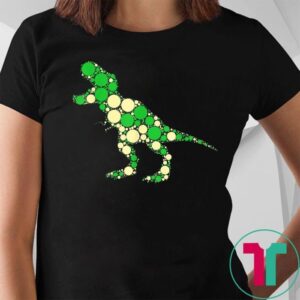Embark on a culinary journey as we define pesco vegetarianism, a unique dietary approach that harmonizes plant-based nutrition with the inclusion of seafood. Discover the distinctions that set pesco vegetarians apart from other vegetarian counterparts and delve into the potential health benefits associated with this balanced diet.
Uncover the diverse food sources that nourish pesco vegetarians, ranging from vibrant fruits and vegetables to nutrient-rich seafood. Explore the practical considerations and challenges that accompany this dietary choice, empowering you with guidance on meeting nutritional needs and navigating social situations.
Define Pesco Vegetarianism
Pesco vegetarianism is a type of vegetarian diet that includes fish and other seafood but excludes meat, poultry, and eggs. It is a relatively new term, with its origins in the 1990s. Pesco vegetarians often adopt this diet for various reasons, including health, environmental, or ethical concerns.
Difference from Other Types of Vegetarians, Define pesco vegetarian
Pesco vegetarians differ from other types of vegetarians in that they consume fish and other seafood. This distinction sets them apart from vegans, who exclude all animal products, and lacto-ovo vegetarians, who consume dairy and eggs in addition to plant-based foods.
Pesco vegetarians typically follow a diet that is rich in fruits, vegetables, whole grains, and legumes, with the addition of fish and seafood.
Benefits of a Pesco Vegetarian Diet
Adopting a pesco vegetarian diet offers a range of potential health benefits, making it a nutritious and balanced dietary choice. Let’s explore these advantages and how it compares to other dietary patterns.
Nutrient Rich
Pesco vegetarian diets are rich in essential nutrients, including protein, omega-3 fatty acids, vitamins, and minerals. The inclusion of fish and seafood provides high-quality protein and omega-3s, which are crucial for heart and brain health. Additionally, pesco vegetarians consume ample fruits, vegetables, whole grains, and legumes, ensuring a diverse intake of vitamins, minerals, and fiber.
Improved Heart Health
Research suggests that pesco vegetarian diets may contribute to improved heart health. The omega-3 fatty acids found in fish and seafood have anti-inflammatory properties that can reduce the risk of heart disease, stroke, and other cardiovascular complications. Furthermore, the high fiber content from plant-based foods helps lower cholesterol levels, further protecting heart health.
Reduced Risk of Chronic Diseases
A pesco vegetarian diet may lower the risk of developing certain chronic diseases. The antioxidant-rich fruits and vegetables provide protection against oxidative stress and inflammation, which are linked to chronic conditions such as cancer, diabetes, and neurodegenerative diseases. Additionally, the high fiber intake helps regulate blood sugar levels and promotes gut health, reducing the risk of type 2 diabetes and certain types of cancer.
Comparison to Other Diets
Compared to other dietary patterns, a pesco vegetarian diet offers several advantages. It provides a balanced intake of protein, omega-3 fatty acids, and essential nutrients while limiting saturated fat and cholesterol. Vegetarian diets tend to be lower in protein and vitamin B12, while vegan diets exclude all animal products, which can make it challenging to obtain sufficient protein and certain nutrients.
In comparison, pesco vegetarian diets allow for the inclusion of fish and seafood, providing a wider range of nutrient sources.
Food Sources for Pesco Vegetarians
Pesco vegetarians have a wide range of food options to choose from, including fruits, vegetables, whole grains, legumes, nuts, seeds, and fish. These food groups provide a variety of essential nutrients, including protein, fiber, vitamins, and minerals.
Fruits and Vegetables
Fruits and vegetables are excellent sources of vitamins, minerals, and fiber. Pesco vegetarians can enjoy a wide variety of fruits and vegetables, including:
- Fruits: apples, bananas, berries, citrus fruits, grapes, melons, peaches, pears, pineapple
- Vegetables: asparagus, broccoli, carrots, cauliflower, celery, cucumbers, leafy greens, onions, peppers, potatoes, tomatoes
Whole Grains
Whole grains are a good source of fiber, vitamins, and minerals. Pesco vegetarians can choose from a variety of whole grains, including:
- Brown rice
- Quinoa
- Oats
- Whole-wheat bread
- Whole-wheat pasta
Legumes
Legumes are a good source of protein, fiber, and iron. Pesco vegetarians can choose from a variety of legumes, including:
- Beans
- Chickpeas
- Lentils
- Peas
Nuts and Seeds
Nuts and seeds are a good source of protein, fiber, and healthy fats. Pesco vegetarians can choose from a variety of nuts and seeds, including:
- Almonds
- Cashews
- Chia seeds
- Flax seeds
- Walnuts
Fish
Fish is the primary source of animal protein for pesco vegetarians. Pesco vegetarians can choose from a variety of fish, including:
- Salmon
- Tuna
- Cod
- Haddock
- Trout
Considerations for Pesco Vegetarians
While a pesco vegetarian diet offers numerous benefits, it’s important to be aware of potential challenges and considerations. One of the main concerns is ensuring adequate intake of certain nutrients that may be limited in this diet.
To address these challenges, pesco vegetarians should pay attention to the following:
Nutritional Needs
- Protein:Fish and seafood are excellent sources of protein, but pesco vegetarians may need to supplement their diet with other protein-rich foods, such as eggs, beans, lentils, or tofu.
- Iron:Iron is essential for red blood cell production, and while fish contains some iron, it’s not as readily absorbed as iron from plant sources. Pesco vegetarians can increase their iron intake by consuming fortified cereals, leafy green vegetables, or beans.
- Vitamin B12:Vitamin B12 is found exclusively in animal products, so pesco vegetarians must ensure they consume enough fish and seafood to meet their daily needs. Fortified foods or supplements may also be necessary.
- Omega-3 Fatty Acids:Omega-3 fatty acids are important for heart and brain health. While fish is a good source of omega-3s, pesco vegetarians may want to consider consuming algae supplements or fortified foods to ensure adequate intake.
Recipes for Pesco Vegetarians
Pesco vegetarianism offers a wide range of culinary possibilities that cater to seafood lovers while adhering to a vegetarian lifestyle. Here’s a curated selection of pesco vegetarian recipes that provide a balanced and flavorful approach to eating.
Breakfast
- Smoked Salmon and Avocado Toast: Whole-wheat toast topped with smoked salmon, creamy avocado, capers, and a drizzle of lemon juice.
- Scrambled Eggs with Spinach and Feta: Scrambled eggs with fresh spinach, crumbled feta cheese, and a sprinkling of herbs.
- Yogurt Parfait with Berries and Granola: Layers of yogurt, fresh berries, and crunchy granola, topped with a drizzle of honey or maple syrup.
Lunch
- Grilled Salmon Salad with Quinoa: Grilled salmon served over a bed of quinoa, mixed with roasted vegetables, feta cheese, and a tangy vinaigrette.
- Tuna Salad Sandwich on Whole-Wheat Bread: Tuna salad made with canned tuna, celery, onion, and mayonnaise, served on whole-wheat bread with lettuce and tomato.
- Vegetarian Chili with Cornbread: A hearty chili filled with beans, vegetables, and spices, served with warm cornbread.
Dinner
- Pan-Seared Scallops with Lemon-Herb Sauce: Scallops pan-seared to perfection, drizzled with a lemon-herb sauce, and served with roasted vegetables.
- Grilled Trout with Roasted Asparagus and Potatoes: Grilled trout fillets accompanied by roasted asparagus and potatoes, seasoned with olive oil, salt, and pepper.
- Pasta with Shrimp and Sun-Dried Tomatoes: Whole-wheat pasta tossed with sautéed shrimp, sun-dried tomatoes, spinach, and a light tomato sauce.
Snacks
- Trail Mix with Nuts, Seeds, and Dried Fruit: A mix of nuts, seeds, and dried fruit, providing a quick and portable snack.
- Hummus with Vegetable Sticks: Hummus made from chickpeas, tahini, and olive oil, served with vegetable sticks for dipping.
- Apple Slices with Peanut Butter: Apple slices spread with peanut butter, offering a satisfying and nutritious snack.
End of Discussion
Pesco vegetarianism emerges as a versatile and sustainable dietary option, offering a plethora of health benefits while honoring ethical concerns. Whether you seek to reduce meat consumption, explore new culinary horizons, or simply enhance your overall well-being, embracing a pesco vegetarian lifestyle can lead you down a path of nourishment and discovery.
Detailed FAQs: Define Pesco Vegetarian
What is the primary distinction between pesco vegetarians and vegans?
Pesco vegetarians consume seafood, while vegans abstain from all animal products, including seafood, eggs, and dairy.
Are there any nutritional concerns associated with a pesco vegetarian diet?
Pesco vegetarians may need to pay attention to their intake of certain nutrients, such as vitamin B12, iron, and omega-3 fatty acids, which are primarily found in animal products.
Can pesco vegetarians enjoy a socially active lifestyle?
Yes, pesco vegetarians can navigate social situations by being mindful of their dietary choices and communicating their preferences to others.





Leave a Comment